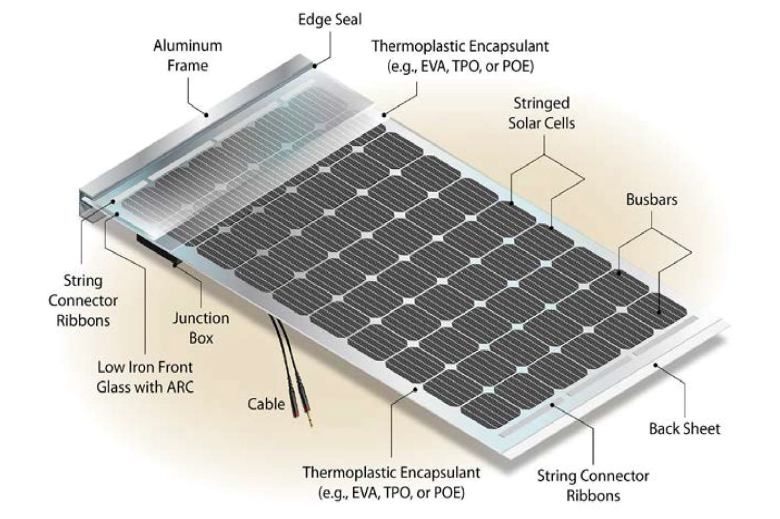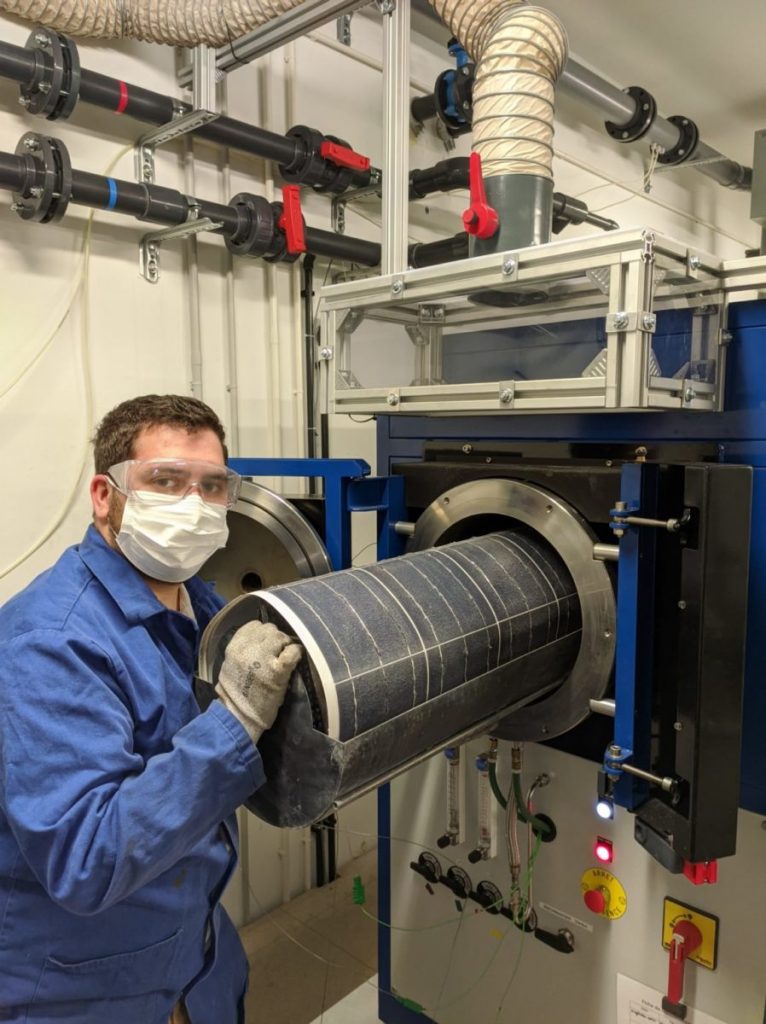As solar photovoltaics (PV) continue to be manufactured and installed across the globe, the issue of what happens with solar panels (aka, solar modules) at their end of life grows in importance. Sustainability includes a product’s full life-cycle which is important to most people purchasing solar. Simply throwing solar panels into a landfill is less than ideal. The good news is that most of the components in most solar modules are recyclable including 100% of the aluminum frame, 95% of the glass and 85% of the silicon cells.

According to the Solar Energy Industries Association (SEIA), 95% of all solar panels in the US have been installed since 2012, so the majority aren’t expected to hit the end of their 25+year lifespan/warranty for another 15 years. Fortunately, most (95%) of these panels contain silicon solar cells making the recycling process simpler than with panels containing more toxic and harder to extract materials like cadmium telluride (CdTe).
The Environmental and Energy Study Institute reports that PV recycling costs about $25 per module (panel).
In 2017, Washington was the first state in the US to pass legislation requiring solar panel recycling however our state also put the program on hold, so additional input can be sought from PV manufacturers (plus the pandemic is slowing up development on the PV stewardship program).
Solar photovoltaics are already being recycled in other parts of the globe and Rosi Solar in France just announced they’ve developed a new pyrolysis process that separates out the high purity silicon, silver and copper used in silicon-based solar PV modules, the majority of the kinds of solar panels currently sold in the US.

As we continue to ramp up the manufacturing, installation and eventually, the recycling of solar panels, lots of opportunities will be created. It’s estimated that by 2030, the cumulative value of recoverable raw materials from end-of-life panels globally will be about $450 million.
So, if you worry about what happens to solar panels at their end of life, the good news is that most of them will be able to be recycled. Similarly, most of the materials used in energy storage systems are also recyclable but like solar, the end-of-life processes and business models need to be scaled up. Both sectors need to be mindful of how to more responsibly mine the materials at the front-end of their products life-cycle. At Puget Sound Solar, we check in periodically with our suppliers to find out what the manufacturers of our products are doing to develop more sustainable business practices.


